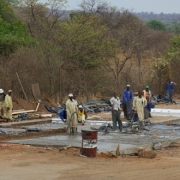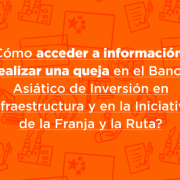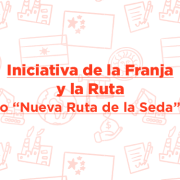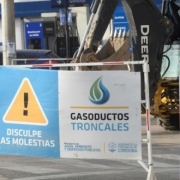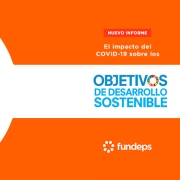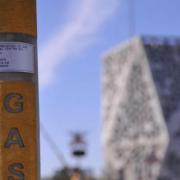We exhibited at the ALADAA National Congress about the role of the AIIB in the New Silk Road
On August 23, Fundeps participated in the ALADAA National Congress within the framework of the Global Governance area agenda on Chinese investments in Latin America.
Below, we offer a google translate version of the original article in Spanish. This translation may not be accurate but serves as a general presentation of the article. For more accurate information, please switch to the Spanish version of the website. In addition, feel free to directly contact in English the person mentioned at the bottom of this article with regards to this topic.
On August 22 and 23, 2019, the IX National Congress of ALADAA (Latin American Studies Association of Asia and Africa) Argentina “Cultures in Motion: Potentials and Challenges in Globalization. Asia and Africa from Latin America” was held in the city of Río Cuarto. Fundeps participated by presenting a paper entitled “The role of the Asian Infrastructure Investment Bank (AIIB) in the New Green Silk Road”, which was presented by the Global Governance area volunteer, Mariano Camoletto.
The article deals with the financing of the Silk Road and the Silk Road Initiative, analyzing the role of the AIIB as its financial engine. In addition, it explores whether financing through the AIIB represents a possibility of providing greater environmental and social sustainability to the projects implemented in the framework of the New Silk Road (also known as the Belt and Road Initiative), the mega project on a global scale driven by China.
The AIIB, whose headquarters is in Beijing, was created in 2015 on the initiative of China and currently has more than 100 members, among which Argentina. The bank aims to contribute to the economic and social development of Asia with a focus on sustainable infrastructure, private capital mobilization and connectivity. For its fulfillment, the AIIB has a portfolio of 100 billion dollars and the strategy is based on the Lean, Clean and Green concept through which the bank seeks to be efficient, agile, ethical and environmentally friendly.
As for the bank’s operational policies, the most important are the Environmental and Social Framework and the Accountability Mechanism. As for the first, it was approved in 2016 and its purpose is to help the bank and its clients achieve positive results of environmental and socially sustainable development in their projects, as well as expose the institutional objectives to address environmental and social risks and impacts in the projects financed by the bank. Likewise, compliance with these policies is mandatory in order to access bank financing.
As for the Bank’s Accountability Mechanism, it was launched in 2018 and is intended to receive complaints and requests from those communities or populations negatively affected by Bank-financed projects. The mechanism has two essential functions: the first one is the resolution of disputes through dialogue and understanding of the affected parties; and secondly, that of compliance review, which consists in this mechanism investigating whether the Bank has fulfilled its obligations regarding the proper application of its operational policies.
The main objective of our participation as exhibitors in this congress was to promote the foundation’s approach to the national and provincial academic community for the study of Chinese investments and initiatives (such as the AIIB) and its impact on society, which is usually reflected in infrastructure projects with potential (or real) environmental and social impacts. The joint work has the purpose of analyzing and understanding China’s socio-political and economic insertion model in Latin America and, especially, in Argentina; as well as the strategies that Latin American countries implement against this phenomenon in the framework of the Silk Road.
More information
Author
Mariano Camoletto
Contact
Gonzalo Roza, gon.roza@fundeps.org

